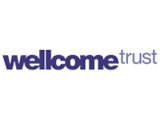
Earlier in September six medical research charities launched the Charity Open Access Fund (COAF) to cover open access, article-processing charges. Robert Kiley is Head of Digital Services at the Wellcome Library and is responsible for overseeing the implementation of the Trust’s open access policy. Here he explains what the fund is, how it can be used and why it has been established.
The Charity Open Access Fund (COAF) is a partnership between Arthritis Research UK, Breast Cancer Campaign, the British Heart Foundation, Cancer Research UK, Leukaemia & Lymphoma Research and the Wellcome Trust to enable free and unrestricted access to the published outputs of the research we support.
COAF will provide block grants to 36 UK research institutions (http://www.wellcome.ac.uk/About-us/Policy/Spotlight-issues/Open-access/Charity-open-access-fund/WTP057250.htm), which can be used to cover article processing charges (APCs) for peer reviewed original research articles, where the research reported is funded by one, or more, of the participating charities. COAF will become operational on 1 October 2014, and will be administered by the Wellcome Trust on behalf of the partners for an initial two-year pilot phase.
Publishers which offer an open access, APC-model should be aware of this fund and the conditions which are attached to this funding – which are essentially identical to those for the existing open access funding provided by the Wellcome Trust.
Specifically, when this fund is used to cover the costs of an APC the publisher must:
- Deposit, on behalf of the author, the final version of the article – which includes all the changes that arise from the peer-review, copy-editing and proofing processes – in PubMed Central (PMC), where it must be made freely available at the time of publication. A link to the article on the publisher site is not sufficient. [Details of the specific technical requirements for depositing papers in PMC can be found on the PubMed Central website.]; and
- licence that content under a Creative Commons Attribution-only (CC-BY) licence.
Together the partners are providing around £12 million to fund the two-year pilot of the COAF.
In making this additional funding available we expect publishers to deliver value for money in terms of the APC they levy. For publishers operating hybrid models, we will expect increased revenue from APCs to be reflected in reductions in the subscription fees they set (for non OA content).
After operating the Fund for one year we will publish details on how the Fund has been used and, working with colleagues at RLUK and Jisc Collections, consider whether additional rules need to be set to ensure that UK institutions are getting value for money in terms of their combined OA and subscription spend.
We believe that open and unrestricted access to our research will maximise its impact. Open access facilitates rapid and widespread sharing of knowledge and promotes innovation. Ultimately, this should help to give patients access to better treatments sooner.
For further information, please see the COAF website at http://www.wellcome.ac.uk/coaf





















